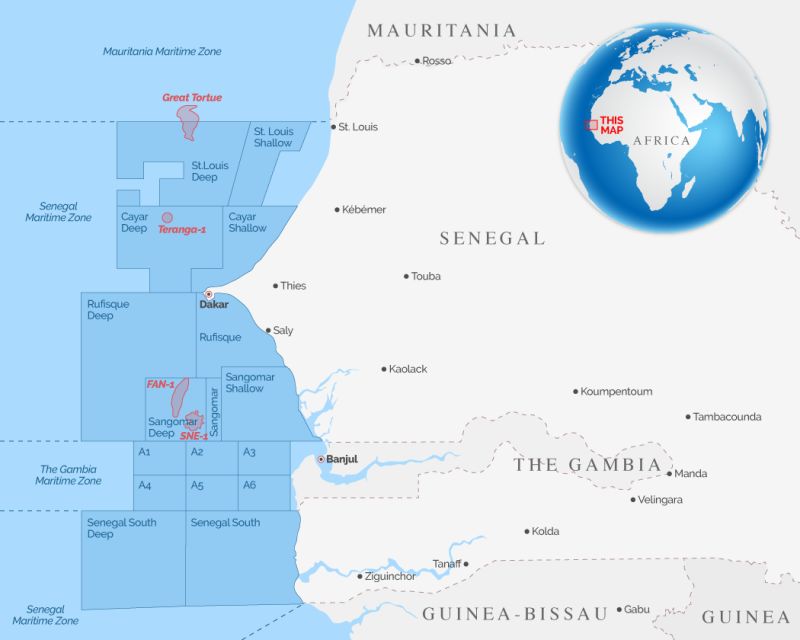Senegal is the westernmost country in continental Africa. As of 2021, its Gross Domestic Product stood at $27.6 billion. It's the fourth-largest West African economy after Nigeria, Ghana and Cote D’Ivoire.
The country is bounded by Guinea-Bissau in the south-west; Guinea in the south-east; Mali to the east and Mauritania to the north and north-east. To the West is the Atlantic Ocean. This is interrupted by a short coast of The Gambia. The rest of Gambia continues from the coast and narrowly extends into Senegal. The Senegal coast continues southward till it reaches its border with Guinea-Bissau.
For a long time, Senegal's most important natural resource has been its soil which produces its most economically viable crop, peanut (groundnut). Recently, however, the country has found huge gas and oil offshore that is estimated to rake in billions in the coming financial seasons. The hydrocarbon jackpot is one of the largest in the region.
The development of these fields is further going to create auxiliary industries as well as significant numbers of direct and indirect jobs that would increase the purchasing power of consumers. The proximity of Senegal to Europe and the determination by the latter to reduce reliance on Russian gas could be good news for Dakar.
In addition to this, Senegal has a robust and developing mining sector that keeps increasing its share of the economy—currently covering 40%. The mining sector produces gold, manganese, phosphate and industrial clay among others.
The Senegalese economy is projected to grow at a whopping 10.5% in 2024. This would be quite unprecedented in its history.
Through this colonial policy, the French set out to make their colonies extensions of metropolitan France. Politics, culture, society and economics in the colonies must be designed on French principles.
Security issues:
Despite Senegal being the only country apart from Cape Verde to have avoided military rule since its independence, recent political unrest in the country has raised eyebrows. With the declaration by President Macky Sall that he would not seek a third term, some calm is expected in the short to medium term.
In recent times, issues including terrorism, desertification and youth unemployment have also been securitized by the central government. Despite not typically being referred to as a Sahel state, Senegal has some Sahel vegetation. Terror threats in neighbouring Mali are, therefore, a concern for the country.
Verdict:
Despite the security challenges, the president’s statement and recent peace deals with Casamance separatists in the south are good signs of stability. However, more needs to be done to build confidence between the opposition and the ruling government as elections approach.
Investing in Senegal will not be a bad idea.
